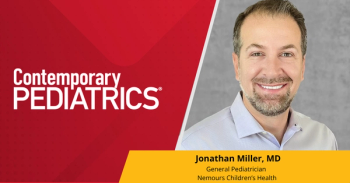
Antibiotics improve outcomes in small skin abscesses
Antibiotic treatment with either clindamycin or trimethoprim- sulfa - methoxazole (TMP-SMX) leads to better outcomes than incision and drainage with placebo in patients with uncomplicated cutaneous abscesses, particularly those caused by Staphylococcus aureus, according to a large study.
Antibiotic treatment with either clindamycin or trimethoprim- sulfa - methoxazole (TMP-SMX) leads to better outcomes than incision and drainage with placebo in patients with uncomplicated cutaneous abscesses, particularly those caused by Staphylococcus aureus, according to a large study.
Investigators conducted a multicenter trial in 786 individuals, 281 of whom were children, with a single skin abscess no larger than 5 cm. After undergoing abscess incision and drainage, participants were assigned to receive clindamycin, TMP-SMX, or placebo. After 10 days of this regimen, participants in the clindamycin and TMP-SMX groups had similar cure rates (83.1% and 81.7%, respectively), compared with 68.9% in the placebo group. Clindamycin was particularly effective in children.
Cure rates for participants who were culture-positive for S aureus were similar in the clindamycin and TMP-SMX groups-83.5% and 83.2%, respectively-and 63.8% for placebo. Both TMP-SMX and clindamycin were nearly equally effective for treating methicillin-resistant S aureus (MRSA), curing 84.6% and 81.7%, respectively, compared with 62.9% of those given placebo. For methicillin-susceptible S aureus, clindamycin was the best treatment. In patients infected with this organism, 89.1% were cured in the clindamycin group compared with 79.6% in the TMP-SMX group and 65.9% of those receiving placebo.
At a 1-month follow-up with participants who had been cured, new infections had developed in 6.8% of clindamycin recipients, 13.5% of TMX-SMX recipients, and 12.4% of placebo recipients. The difference between the 2 antibiotics’ association with new infections was even more pronounced among children: 13.3% of those treated with TMP-SMX experienced interval or recurrent infections compared with 4.4% of those who received clindamycin.
The clindamycin group experienced mild adverse events (diarrhea or nausea) more often than the TMP-SMX group (21.9% vs 11.1%, respectively) or the placebo group (12.5%) (Daum RS, et al. N Engl J Med. 2017;376 [26]:2545-2555).
Thoughts from Dr Burke
Do you remember when infection with community-acquired methicillin-resistant Staphylococcus aureus (MRSA) was unusual? First reports of this organism as a common pathogen in skin and soft tissue infections began appearing in the early 2000s. In this multicenter study, just under 50% of abscesses grew MRSA, although to me it seems like more.
In this multicenter, placebo-controlled study, the authors make a good argument for treating with antibiotics after incision and drainage, even in smaller abscesses. Some previous, smaller studies failed to show benefit of additional treatment. Either TMP-SMX or clindamycin would be reasonable choices unless the antibiogram at your local hospital or lab shows high rates of MRSA resistance to clindamycin in your community.
Newsletter
Access practical, evidence-based guidance to support better care for our youngest patients. Join our email list for the latest clinical updates.








